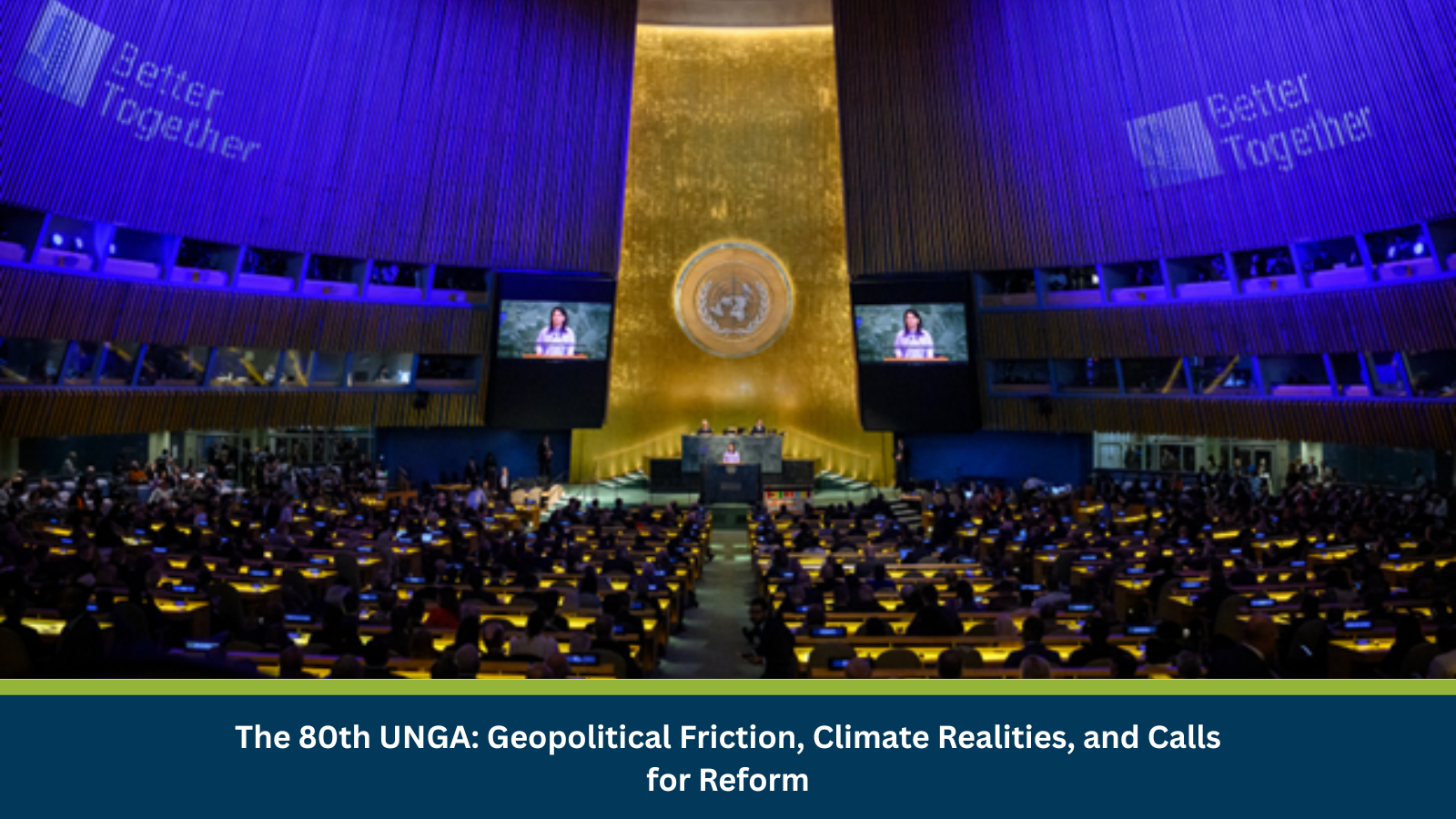
The 80th session of the United Nations General Assembly (UNGA) opened in early September 2025 in New York, with the High-Level General Debate beginning on 23 September. Leaders from more than 150 states took the podium to present their countries’ priorities, highlight pressing global issues, and engage in dialogue on international challenges. For observers, the Assembly serves as a window to the state of the world, showcasing shifting alliances, emerging conflicts, and evolving positions among major powers. The 2025 session addressed entrenched conflicts such as the Israeli-Palestinian dispute and the war between Ukraine and Russia, alongside broader concerns including climate change, artificial intelligence governance, and institutional reforms within the UN.
US Priorities and Critiques
US President Donald Trump delivered address highlighting America’s priorities and criticisms of global institutions. He claimed to have ended “seven unendable wars” in seven months while criticizing the UN for its perceived inability to resolve conflicts. Trump also targeted NATO countries for continuing economic engagement with Russia and accused India and China of indirectly supporting Moscow’s war efforts. On climate and energy, he defended the US withdrawal from the Paris Agreement and dismissed renewable energy initiatives as ineffective. He further criticized the UN’s support for asylum seekers, calling it an “assault on western countries,” and condemned European nations for recognizing a Palestinian state, describing it as “rewarding Hamas terrorists.”
General Debate Highlights
The High-Level General Debate featured several notable moments. Syria made a historic return to the Assembly, with Al-Sharaa becoming the first Syrian head of state to address the UN since 1967, following the toppling of President Bashar al-Assad by Hay’at Tahrir al-Sham. Despite remaining under UN sanctions, he received a travel exemption to attend. In his speech, Al-Sharaa sharply criticized Israel, stating that its policies and ongoing threats jeopardize regional stability and contradict international support for the Syrian people.
A significant incident occurred during Israeli Prime Minister Benjamin Netanyahu’s speech, which prompted a walkout by several countries. Netanyahu declared that Israel must “finish the job” in Gaza and emphasized that he would “not rest until all the hostages are brought home.” The episode highlighted the deep divisions and heightened tensions surrounding the ongoing conflict in Gaza.
Sanctions Diplomacy and Conditional Recognition
Attention also turned to Iran, with a looming September 28 deadline for the potential reimposition of UN sanctions under the “snapback” mechanism initiated by Britain, France, and Germany. Iranian President Masoud Pezeshkian insisted that Tehran “will never seek to build a nuclear bomb.” US Middle East Envoy Steve Witkoff responded that the U.S. had “no desire to hurt them.” Last-minute diplomatic efforts in New York aimed to prevent the automatic return of all Security Council sanctions.
Indonesia signaled a conditional approach to future alliances, clarifying that a major diplomatic step would be contingent on a specific outcome. President Prabowo pledged tens of thousands of peacekeepers to conflict zones and indicated that his country would only recognize Israel if Palestinian statehood is first acknowledged. He emphasized respect for “Israel’s right to security” as essential for “real peace” and concluded his address with the Hebrew benediction, “Shalom.”
Calls for Reform
Calls for institutional reform were also strong. Kenya pressed for a restructured UN Security Council, requesting at least two permanent African seats with full veto power and two additional nonpermanent seats. The vast continent of Africa, home to more than 50 countries, still lacks representation at the high table.
As each September brings the UNGA into focus, demands for reform intensify, mirroring a world grappling with rising fragmentation and complex global challenges. The 80th session general debate showcased tensions, priorities, and opportunities for cooperation that define today’s international landscape.





